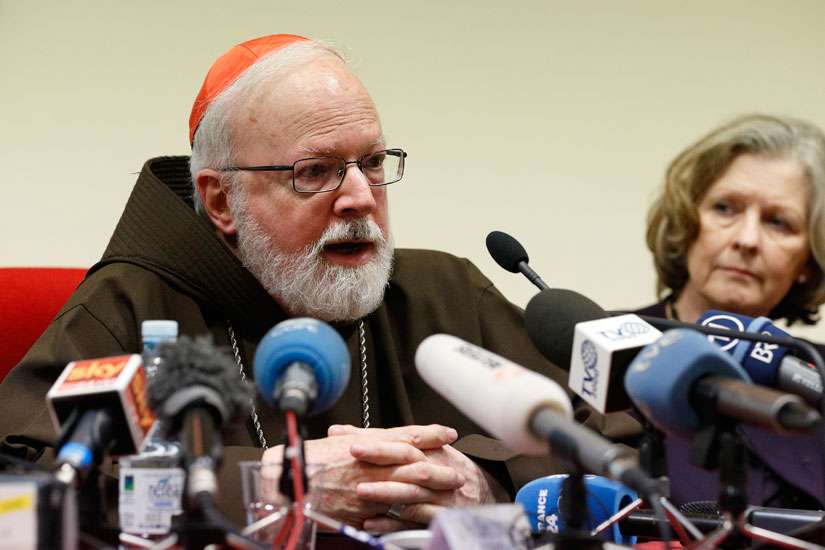Jesuit Father Federico Lombardi said the need for clear and appropriate procedures for cases of "abuse of office" or a failure to act was presented to the group by Boston Cardinal Sean O'Malley, one of the Pope's top cardinal advisors and president of the Pontifical Commission for the Protection of Minors.
The Council of Cardinals, often referred to as the C9, held the second of five meetings scheduled this year April 13-15 with Pope Francis at the Vatican to help advise him on the reform of the Vatican's organization and Church governance.
Lombardi, Vatican spokesman, told reporters April 15 that O'Malley asked the Pope and the council to "take on the subject of accountability and responsibility" when it comes to bishops and others in leadership who fail to comply with child protection norms.
It would be a question of coming up with clear and "appropriate procedures and ways to evaluate and judge cases of 'abuse of office' ” or a failure to fulfill one's responsibilities when it comes to reporting and handling suspected and known cases of abuse, the spokesman said.
The three days of talks, however, concentrated on the group's main task of devising the best ways to reform the Vatican bureaucracy, Lombardi said. Specifically, he said, the group looked at the best "methodology to follow" for the work that needs to be done before the end of 2016 so they can carry out "effectively the task of preparing the new constitution" for the Roman Curia.
The idea of merging several existing pontifical councils into two large congregations was "pretty much reinforced" during the meetings, he said, referring to the establishment of a new Congregation for Charity, Justice and Peace and a new Congregation for Laity, Family and Life.
It could be expected, he said, that the reform process would be progressively implemented and would not necessarily be something that would occur "all at once at the end."
Concerning the revamping of the Vatican's many communications structures, the cardinal advisors suggested the Pope name a new commission or group that would hammer out how to enact a previous commission's recommendations.
An 11-member body led by British Lord Chris Patten already handed in a final report recommending ways Vatican communications structures could be streamlined and modernized.
It was foreseeable, Lombardi said, that the Pope would create a commission that would also include members of the previous commission and would look at how to "concretely put into practice the recommendations in the report."


